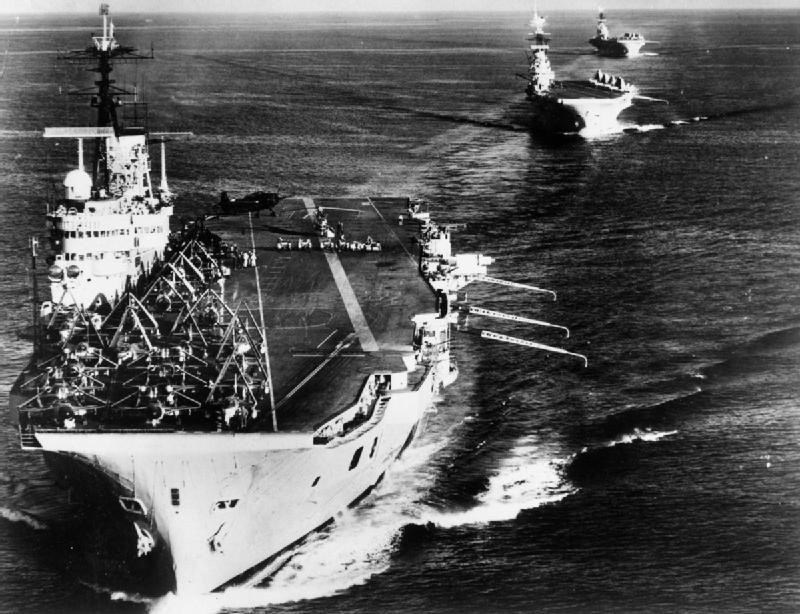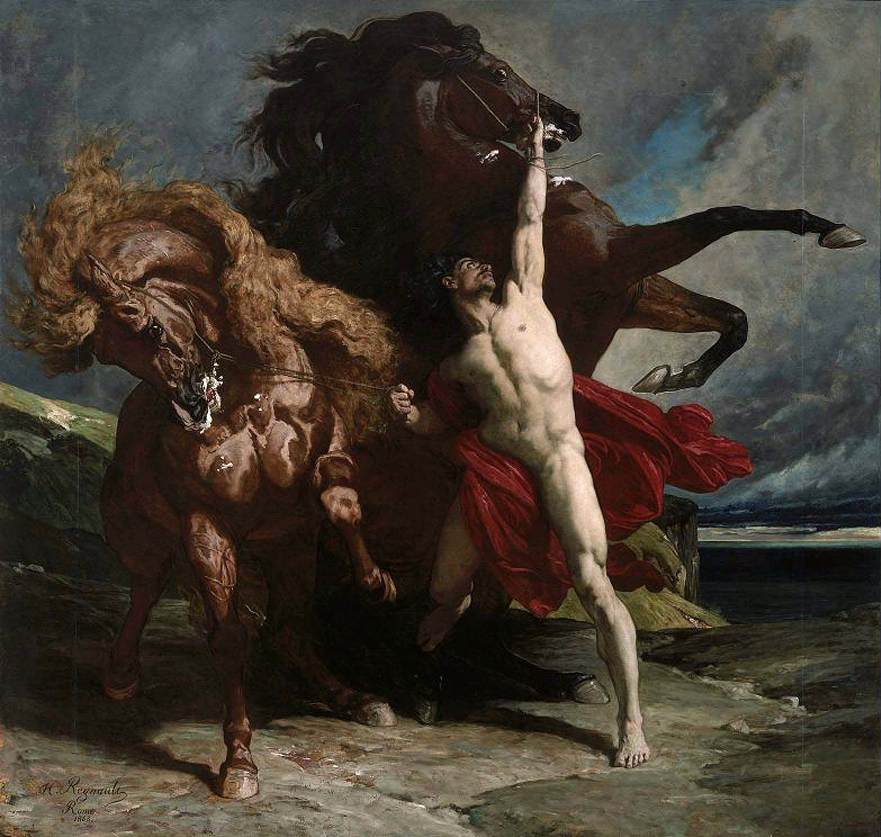
Henry V
Tobacco Factory Theatre, 22nd September 2018
Hello. I feel another bout of hyperbole coming on. It could just be that cumulative exposure is making me realise what the smarter punters and all the luvvies have known for hundreds of years, that nothing comes close to Shakespeare. It could be that my first visit to the Tobacco Factory has revealed a near perfect space, intimate but airy, in the round, with the right vibe of industrial chic, (and a good value curry in Thali next door). It could be that the Shakespeare at the Tobacco Factory company, under retiring founder Andrew Hilton, continues to churn out top quality productions of the Bard, and a few others, as it has done since its founding in 2000. Last year’s Othello set the ball rolling for me (Othello at Wilton’s Music Hall review ****) and I now intend to make a note in the diary for future pilgrimages to Bristol.
However I think the special ingredient in this particular production lies in the direction of Elizabeth Freestone. Ms Freestone is not afraid to offer up a contemporary slant on big Will, which usually works for me. Indeed she is the director behind Jeanie O’Hare’s composition of Queen Margaret at the Royal Exchange Manchester as we speak. Queen Margaret is one of Shakespeare’s best, no question, and I gather the magnificent jade Anouka is doing the business in the title role, though she will need to to get anywhere near the visceral walloping Sophie Okonedo gave the character in The Hollow Crown. (Can’t wait to see ms Okonedo as Cleo at the NT which the critics are loving).
What is patriotism? How to tread the line between the glorification and the senseless horror of war? What makes a “national hero” and how does this get weaved into a nation’s view of itself? How does Henry go from playboy Hal to warrior king? Is he just a cipher, whatever we want him to be? Sincere, scheming or both simultaneously? How to think about Katherine? Simpering pawn or power broker? A lot of good questions to ask at any time but especially when a bunch of utter cocks are playing dangerously fast and loose with our national identity. Once again Shakespeare shows he is the man for all ages when it comes to shedding light on the business of politics.
Lily Arnold’s blissfully simple set, four metal cages filled with stones, is put to work as battlefield and meeting hall, military and political space. A quartet of strip-lights, (recycled from Othello I’ll warrant), megaphone, radio and mic, suitcases and kit-bags, bottles of voddy, clip-boards, melancholic Union Jack and Tricolore. It’s all you really need. Less can so often be more in both the history plays and the tragedies. Go with the standard battle-dress/fatigues of so many modern-dress productions because it just works, but then add some twists to underscore the symbolism. A tutu dress for Mistress Quickly, a sharp suit for Cambridge and the King of France, a T shirt for King Henry, “the Artist formerly known as Prince” – I loved that – and turn Katherine into an imposing skinhead with elegant purple frock-coat suit and DM’s to match.
Cut out superfluous roles, in this interpretation, and double up (most intriguingly Chorus/Burgundy, Canterbury/King of France, Cambridge/Fluellen, York/Bourbon and Nym/Orleans). The armies are interchangeable after all. Lose a few of those pesky Dukes on both sides, Westmoreland, Exeter and York on the English side, with just Cambridge to face the traitorous music, and Bourbon and Orleans, and eventually Burgundy, on the French side. Make Exeter a skilled, female, negotiator. Slim down the English and French armies as well, and lose Queen Isabel and, in a real coup, merge the Dauphin into Katherine (and thus make her relationship with Orleans potentially very weird). And turn the Chorus into a detached, Bristolian, history lecturer.
Start off with a big party night choreographed to Boys Will Be Boys. Make Henry physically and metaphorically begin to stand tall as we move through the battles and make Katherine fight him and the English tooth and nail to the end. Don’t make too much fuss about those tennis balls. Let Henry whizz through the “breach speech”. Turn Katherine’s comedy English/French body part translation into a bitter and furious lament for lover Orleans which scares Henry (and us) witless. See Montjoy humiliated in defeat. Watch Henry only just keep it together after the brutal dispatch of Bardolph then wipe away the tears to receive the patronising French embassy. Ensure maximum ambivalence for our Harry as he wanders the camp for this is surely where the mantle of power is most keenly felt. Believe that Henry is probably bluffing when he threatens the citizens of Harfleur so belligerently.
The comedy relief of Pistol, Nym, Bardolph, Quickly and the Boy doesn’t fare quite as well in this production but their cannon fodder status, even as accident, certainly does. When Exeter reads out the list of the English dead at Agincourt the Boy is “none else of name” but we know his pointless sacrifice. A comparatively modest Harry, as here, makes Pistol’s over the top grandiosity less of a counterpoint. Fluellen is as annoying as ever though.
Now young Ben Hall has a bit of history here having played Henry V at the Guildhall when a student. He obviously has the genes for the theatre being the grandson of Sir Peter, nephew of Edward, (now moving on from Hampstead Theatre), and son of producer Christopher. You probably know him as the bespectacled tutor of Gerry and would be suitor of Margo in The Durrells off the telly, (a Hall family affair of sorts). He left an impression in the recent RSC Coriolanus but here he steps up and given a very interesting performance. Deliberatively tentative and awkward in parts, not entirely conversational but certainly not a master of oratory, with shaved head and red beard, he is believable as soldier if not, even in victory, as king. He spits out the lines too rapidly at the start but as Henry rises to the challenge so his speech becomes more measured, though never entirely, assured, as his disturbing “wooing” of Katharine at the end shows. He is not Olivier’s square-jawed hero, Branagh’s reborn statesman or Lester/Hytner’s war criminal hardman. Ben Hall’s Hal is constantly “wrestling with the moral responsibility of what it means to be a good leader” as Ms Freestone says in the programme. That crown certainly still lies uneasy on that head.
Offering us an androgynous Katherine who is near Henry’s equal in terms of destiny, passion, integrit,y as well as duplicity and xenophobia, with the same hair-cut to boot, is inspired. It is hard to take your eyes off Heledd Gywnn. She prowls the stage with an air of aggressive disdain, coming on all Joan of Arc like, (she popped up a decade, and one play, later). You just know that marriage isn’t going to solve anything at the end.
I was also drawn to the performances of Joanne Howarth as the patient Chorus who at one point is moved to tears, Alice Barclay’s largely composed Exeter, Luke Grant’s York/Bourbon, Zachary Powell’s Nym/Orleans, David Osmond’s verbose Fluellen and Melody Brown’s seasoned Gower. The re-gendering here doesn’t shout out. It just works.
Matthew Graham’s contrasting lighting design and Giles Thomas’s martial though still unobtrusive sound design all contributed to this thoughtful interpretation and experienced movement director Lucy Cullingford, even with this thinned out cast, was at the top of here game. There are some astonishing tableaux in this production, though nothing feels consciously artful. Elizabeth Freestone and Lily Arnold took visual inspiration from the battlefield art of WWI, (go see the Aftermath exhibition on now at Tate Britain for some of the most striking). I can see that and it also reminds us just how after this corner of Northern France has been the host of carnage. (Aftermath at Tate Britain review ****).
For me this is a near perfect production, considered, insightful, innovative and genuinely relevant. The company is drilled to perfection and battle hardy and it looks and moves beautifully. Like I say at the top, it could just be that nobody does it better than Will, but there are many ways to skin the ambiguity of this particular dramatic cat, and it still needs an inspired creative team and cast to bring the verse to life. STF is taking the production on tour so if you are lucky enough to be anywhere near these venues on these dates I implore you to get tickets.
9-13 Oct – Stephen Joseph Theatre Scarborough
16-20 Oct – Dukes Theatre, Lancaster
23-27 Oct – Malvern Theatres
30-3 Nov – Theatre Royal, Bury St Edmunds
6 -10 Nov – Exeter Northcott





